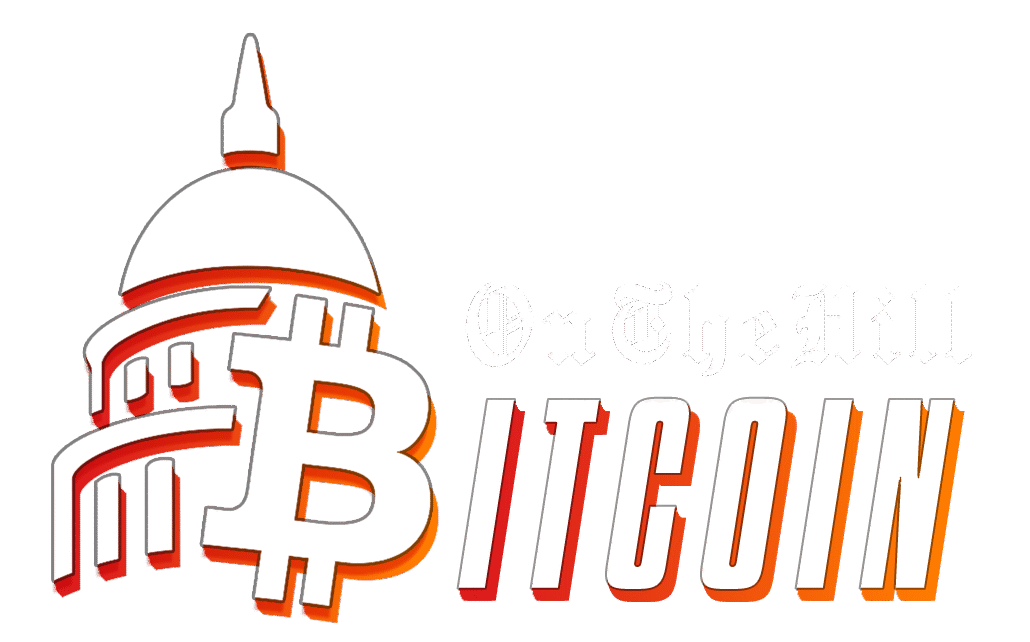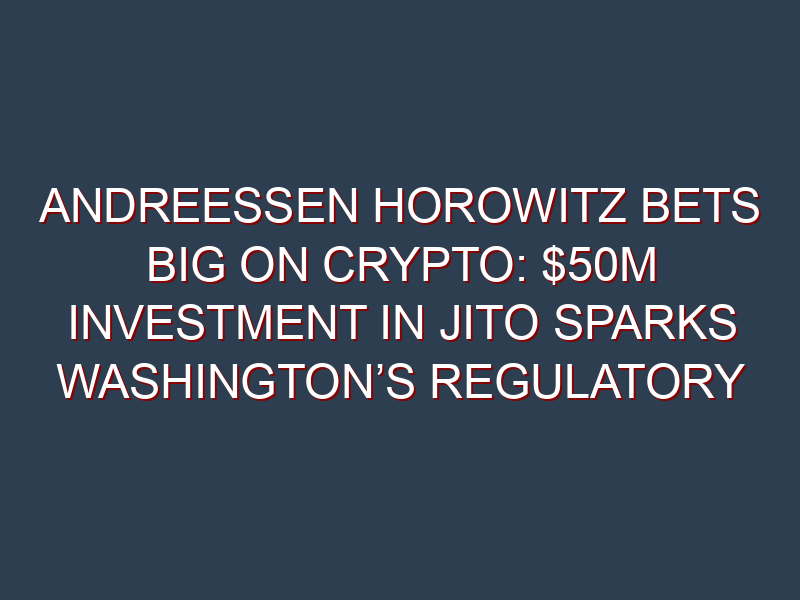Silicon Valley Venture Capital Meets Capitol Hill Scrutiny
The tech elite’s growing fascination with crypto is once again colliding with the realities of American policymaking. With Andreessen Horowitz’s (or a16z’s) headline-grabbing $50 million investment in Jito—a Solana-based staking protocol—political observers are taking notice, wondering just how much more vaulting ambition the U.S. government will tolerate in the decentralized finance (DeFi) space before the regulatory hammer comes down.
This move by one of Silicon Valley’s most influential venture firms isn’t just a vote of confidence in Solana or Jito—it’s a shot across the bow of lawmakers still grappling with the political implications of crypto innovation outpacing traditional policy frameworks.
Crypto Investments: A Magnet for Political Attention
The American political establishment has long maintained a complicated relationship with crypto. As capital pours into protocols like Jito, Washington’s anxieties grow. Why? Because investments like these highlight the jurisdictional gaps between agencies like the U.S. Securities and Exchange Commission (SEC) and the Commodity Futures Trading Commission (CFTC), fueling debate over who should police this rapidly evolving market.
Lawmakers in Congress increasingly see high-profile investments as a challenge to their oversight. Many Democrats are pushing for stricter consumer protections and comprehensive frameworks. Meanwhile, some Republicans warn that overly aggressive regulation could push innovation and jobs overseas.
The Policy Calculus: What’s Driving Washington’s Next Moves?
The underlying issue is whether the U.S. will embrace crypto as an engine of economic growth or clamp down to address volatility, financial crime, and the “shadow banking” risks emanating from DeFi. As Andreessen Horowitz pumps big money into complex blockchain protocols, questions mount: Will this spark a new round of hearings? Could it accelerate the push for bipartisan regulation or embolden the SEC to assert greater jurisdiction over staking platforms?
Already, pressure is mounting from the Treasury Department, which has indicated its intention to close loopholes in the digital asset space. The Treasury’s recent statements underscore growing national security and consumer risk concerns—signals that big investments like a16z’s will be under a microscope.
Regulatory Uncertainty: The Political Tug-of-War Over Crypto’s Future
With the 2024 election cycle in full swing, crypto has emerged as a partisan wedge issue. Democrats in the House and Senate, citing investments like this, have reignited calls for a holistic approach to DeFi oversight. At the same time, key members of the House Financial Services Committee are urging regulators to avoid stifling the “next generation of financial technology.” The upshot? Political wrangling over who sets the rules.
For the industry, this means more uncertainty. For policymakers, each new investment—especially from marquee firms like a16z—raises the political stakes. It’s likely only a matter of time before Congress invites crypto titans to Capitol Hill for another grilling, and the SEC’s press office has already signaled that “staking” activities could fall under the agency’s purview.
The Bottom Line: Policy, Power, and the Persistence of Crypto
Andreessen Horowitz’s $50 million bet on Jito is more than an investment; it’s a spark in the politically charged regulatory powder keg. As venture capital and blockchain innovation outpace Washington’s legislative machinery, expect the debate between pro-growth innovation and responsible oversight to intensify.
Whether you’re cheering on DeFi as a disruptor or worried about systemic risk, one thing is clear: the political implications of this investment will echo far beyond Silicon Valley and into the halls of Congress, shaping the next era of crypto regulation in America.
For ongoing updates on digital asset policy, follow trusted sources like the CFTC press releases and legislative trackers on Congress.gov.





